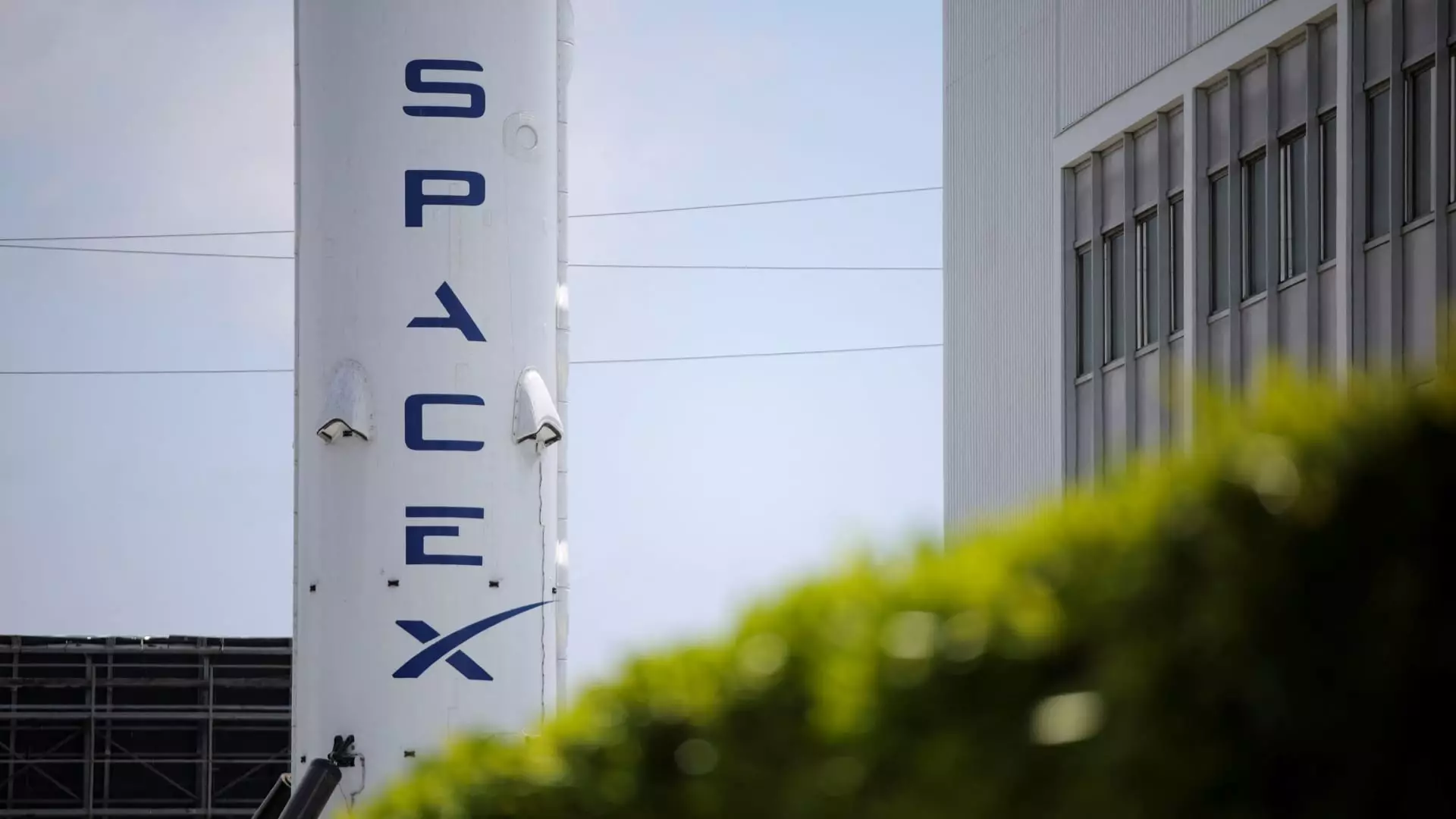In the volatile realm of American politics, where egos often overshadow governance, the recent tensions between President Donald Trump and Elon Musk symbolize a potentially explosive clash of titans. This discord has not merely spawned sensational headlines; it has compelled the Trump administration to direct scrutiny toward SpaceX’s vast network of contracts with the government, which amount to a staggering $22 billion. The juxtaposition of Musk’s ambitions and the administration’s reactions reveals a troubling trend: the weaponization of political power to influence corporate operations. Such maneuvers strike at the very integrity of governmental decision-making processes, raising deep concerns about the intersection of commerce and politics.
Trump’s order for the Department of Defense and NASA to review SpaceX contracts reflects more than just dissatisfaction with Musk’s recent public statements; it raises alarms about retaliatory governance. As government agencies begin to sift through the extensive catalog of contracts SpaceX holds, the specter of political motives surfaces, implying that decisions could hinge on personal grievances rather than the merits of technology or national interests. The alarming prioritization of political agendas over national security and public welfare must be scrutinized as it could herald a dangerous precedent.
The Implications of Subjective Scrutiny
The specter of capricious decision-making looms large when the relationship between the government and private enterprises becomes tangled in political rivalry. Experts in governance and procurement have voiced concerns over whether the fates of contracts should be left to the whims of interpersonal disputes. Scott Amey of the Project on Government Oversight aptly pointed out the ironic possibility that the very standards Musk imposed on other contracts might now be turned against him. If the evaluation of SpaceX’s contracts devolves into a personal vendetta, we risk losing sight of the critical national priorities at stake.
Musk’s SpaceX has not only become a front-runner in aerospace innovation but has also assumed significant responsibilities in U.S. defense operations. As the sole operator of the Dragon spacecraft capable of ferrying astronauts to the International Space Station, SpaceX stands at the crossroads of national pride and technological prowess. These capabilities position it as a crucial ally to the U.S. government, especially as it seeks to fortify its missile defense systems—a vital area for national security. The idea that these contracts could be jeopardized based on the fallout from personal spats raises essential questions about how the lines between politics and merit should be drawn.
Musk’s Political Dance: A Double-Edged Sword
Complicating matters further is Musk’s own political engagement, which often appears erratic and capricious. His recent calls for Trump’s impeachment and tumultuous public remarks have showcased a fraught relationship with an administration he was once part of as an advisor. This contradiction accentuates the potential fallout for SpaceX, which may find itself swept into the chaos of this political whirlwind. Musk’s attempts to ameliorate relations with the administration, while admirable, hint at a precarious balancing act—one that could either solidify or unravel his company’s standing within the government.
Moreover, Musk’s assertion to decommission SpaceX’s Dragon spacecraft amid his ongoing political critique signals a level of precariousness that no government agency should have to navigate. When personal egos become intertwined with corporate policy, it poses risks that could undermine our national security framework. A company so deeply enmeshed in defense operations should not be subject to vacillating sentiments stemming from individual conflicts, yet this appears to be the current situation.
The Larger Narrative: Corporate Responsibility and National Security
The overarching narrative calls for a principled approach to governance that transcends individual conflicts. Reliance on private corporations for critical national functions, such as defense and space exploration, necessitates a system that champions objectivity over subjective grievance. Policymakers must take heed of the delicate balance between corporate interests and the nation’s security priorities. As we dissect the implications of current events, it becomes abundantly clear that clear-headed, objective assessments—rather than political posturing—are imperative for the welfare of America.
Ultimately, as the Trump administration reviews Musk’s contracts, the stakes transcend economic ramifications—echoing loud and clear the threats posed by political retribution in an arena where technological prowess and national security converge. As we navigate these tumultuous waters, it is imperative to remind ourselves that bureaucracy should serve the national interest, not individual ambitions, lest we plunge into a quagmire of misaligned values and diminished public trust.


Leave a Reply